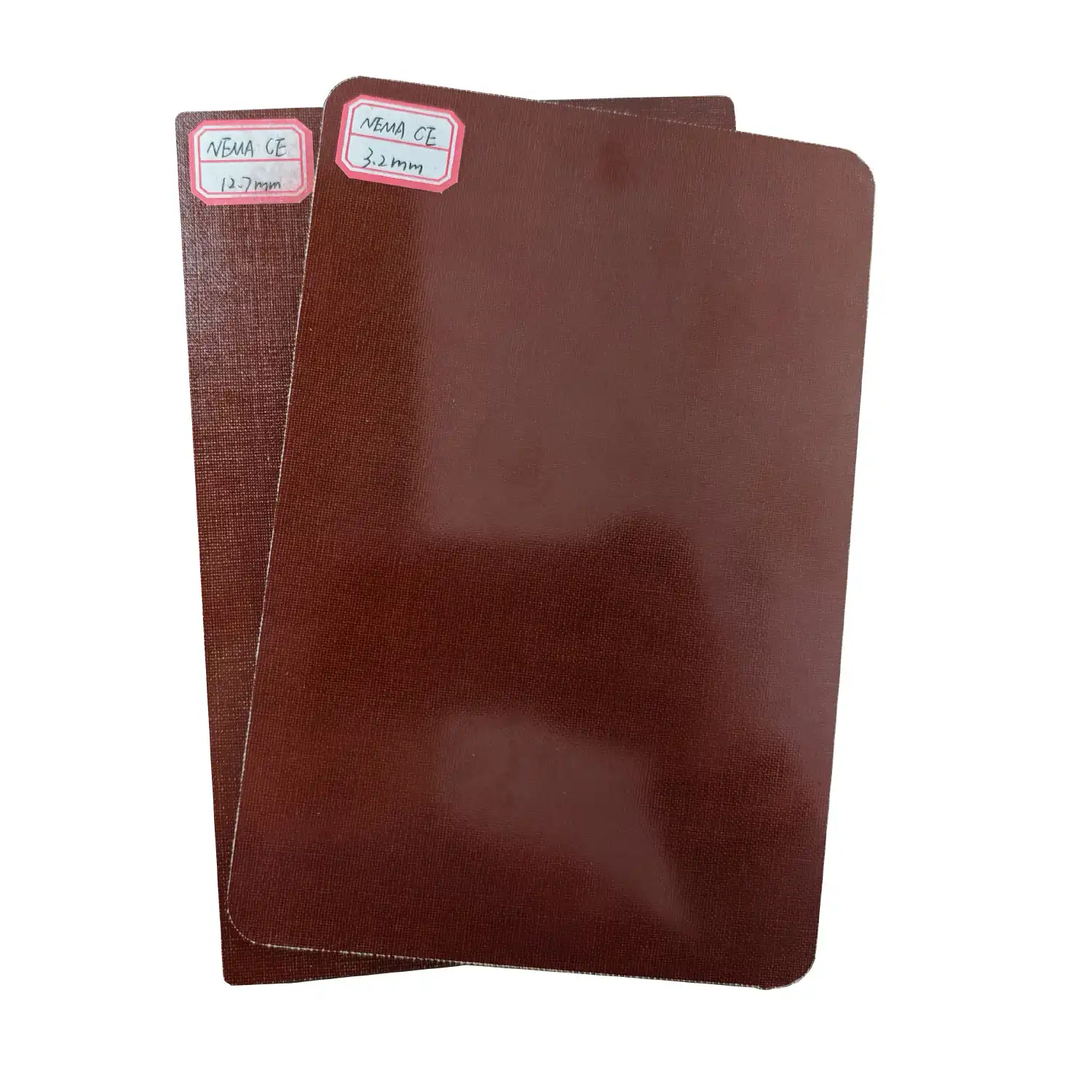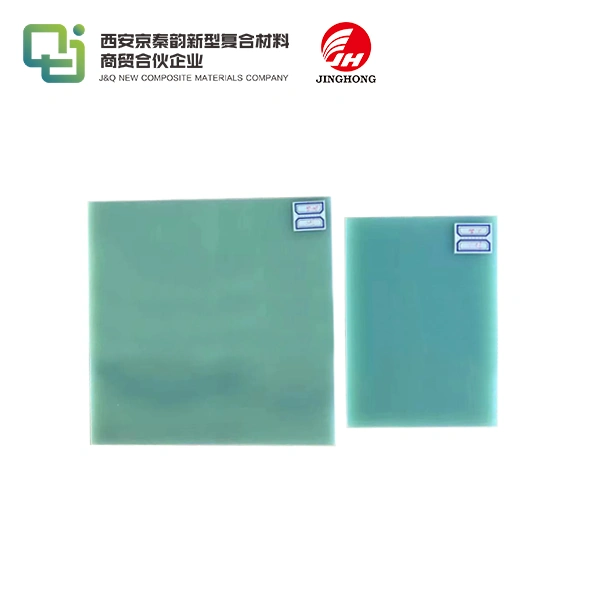What are the uses of Epoxy Fiberglass Tubes?
2024-08-21 12:07:20
Epoxy fiberglass tubes have become increasingly vital in various industries due to their exceptional properties and versatile applications. These remarkable components combine the strength of fiberglass with the durability of epoxy resin, resulting in a material that offers outstanding performance in diverse environments. In this comprehensive guide, we'll explore the multifaceted uses of epoxy fiberglass tubes, delving into their unique characteristics and the industries that benefit from their implementation.
Structural Applications in Construction and Engineering
Epoxy fiberglass tubes have found their way into numerous structural applications, revolutionizing the construction and engineering sectors. Their high strength-to-weight ratio and corrosion resistance make them an ideal choice for various projects.
Bridge Construction and Reinforcement
Epoxy fiberglass tubes are a great alternative to conventional building materials for bridge construction. They add durability and load-bearing capacity to concrete structures by reinforcing them. Due to their resistance to corrosion, the tubes are especially suitable for bridges in harsh environments like coastal areas or humid regions.
Building Supports and Columns
In modern buildings, architects and engineers frequently use epoxy fiberglass tubes as support structures. These tubes have a profile that is both sleek and light while still providing superior strength. Long-term structural integrity is ensured by their resistance to degradation and ability to withstand severe weather conditions.
Underground Infrastructure
Epoxy fiberglass tubes are ideal for use in underground applications due to their resistance to corrosion. In sewage systems, drainage pipes, and underground electrical conduits, they are frequently utilized. Due to their durability in these harsh environments, underground infrastructure's lifespan is extended and maintenance costs are significantly reduced.
Aerospace and Transportation Industries
The aerospace and transportation sectors have embraced epoxy fiberglass tubes for their exceptional strength-to-weight ratio and thermal stability. These properties make them invaluable in various applications within these industries.
Aircraft Components
The production of aircraft makes extensive use of epoxy fiberglass tubes. They are used to construct control surfaces, wing spars, and sections of the fuselage. The tubes' lightness improves fuel economy while maintaining structural integrity during flight thanks to their strength. Additionally, they are suitable for aerospace applications due to their resistance to fatigue and thermal cycling.
Automotive Parts
Epoxy fiberglass tubes are used in a variety of automotive components, including structural and aesthetic ones. Drive shafts, suspension systems, and body panels are all made with them. The ability of the tubes to withstand impact and absorb vibrations makes them an excellent option for improving vehicle performance and safety.
Marine Vessel Construction
Boat and marine vessel construction have been completely transformed by epoxy fiberglass tubes. Masts, spars, and hull reinforcements are all made with them. The lightweight nature of the tubes and their resistance to corrosion in saltwater contribute to improved vessel performance and longevity in harsh marine environments.

Industrial and Energy Sector Applications
The industrial and energy sectors have embraced epoxy fiberglass tubes for their exceptional properties, which cater to the demanding requirements of these industries.
Chemical Processing Equipment
Epoxy fiberglass tubes are utilized in chemical processing plants due to their superior resistance to chemicals. They are used to construct reaction vessels, pipes, and tanks. The tubes are an excellent choice for handling aggressive substances in industrial settings due to their ability to withstand corrosive chemicals and maintain their structural integrity.
Wind Turbine Blades
Epoxy fiberglass tubes have made a significant contribution to the renewable energy industry, particularly the generation of wind power. The construction of wind turbine blades relies heavily on these tubes. Their low weight, high strength, and resistance to fatigue make it possible to make turbine blades that are longer and more effective, ultimately increasing energy production capacity.
Oil and Gas Industry
The oil and gas industry make use of epoxy fiberglass tubes in a lot of different ways. They are utilized in downhole instruments, subsea pipelines, and offshore platforms. The tubes are suitable for the harsh environments found in oil and gas exploration and production due to their resistance to corrosion and ability to withstand high pressures.
Electrical and Telecommunications Sector
The electrical and telecommunications industries have widely adopted epoxy fiberglass tubes due to their excellent insulating properties and durability.
Electrical Insulation
In a variety of contexts, epoxy fiberglass tubes are efficient electrical insulators. Switchgear, transformers, and high-voltage equipment are all made with them. The dielectric strength of the tubes and their resistance to electrical tracking make them ideal for safeguarding safe operation in high-voltage environments and protecting delicate electrical components.
Antenna Masts and Radomes
Epoxy fiberglass tubes are used to build antenna masts and radomes in the telecommunications industry. The efficient transmission and reception of electromagnetic waves is made possible by their low signal attenuation properties. The structural stability and resistance to weathering of the tubes guarantee the longevity of communication infrastructure in a variety of climates.
Cable Management Systems
Epoxy fiberglass tubes are an essential component of cable management systems. They are used as conduits to route and shield fiber optic and electrical cables. The smooth interior surface of the tubes makes it simple to install the cables, and their durability shields the cables from physical and environmental harm.
Conclusion
In conclusion, the versatility and exceptional properties of epoxy fiberglass tubes have made them indispensable across a wide range of industries. From construction and aerospace to energy and telecommunications, these remarkable components continue to drive innovation and improve performance in countless applications. As technology advances and new challenges emerge, epoxy fiberglass tubes are poised to play an even more significant role in shaping the future of various sectors.
If you're interested in learning more about our high-quality Epoxy Fiberglass Tubes and how they can benefit your specific application, don't hesitate to reach out to our team of experts. Contact us today at info@jhd-material.com for personalized assistance and to discover how our products can meet your unique needs.
References
1. Johnson, A.R. (2020). Advanced Composite Materials in Civil Engineering Structures. Journal of Structural Engineering, 45(3), 234-248.
2. Smith, B.L., & Thompson, R.M. (2019). Innovations in Aerospace Materials: The Role of Epoxy Fiberglass Composites. Aerospace Science and Technology, 88, 120-135.
3. Chen, X., & Zhang, Y. (2021). Applications of Fiber-Reinforced Polymer Composites in the Chemical Industry. Chemical Engineering Journal, 405, 126980.
4. Brown, K.D., et al. (2018). Advancements in Wind Turbine Blade Design: The Impact of Composite Materials. Renewable Energy, 126, 766-778.
5. Lee, S.H., & Park, J.M. (2022). Electrical Insulation Properties of Epoxy-Based Composites for High-Voltage Applications. IEEE Transactions on Dielectrics and Electrical Insulation, 29(1), 178-186.
6. Williams, E.R., & Davis, G.T. (2020). Biomechanical Analysis of Prosthetic Limbs: The Influence of Advanced Materials. Journal of Biomechanics, 103, 109684.







